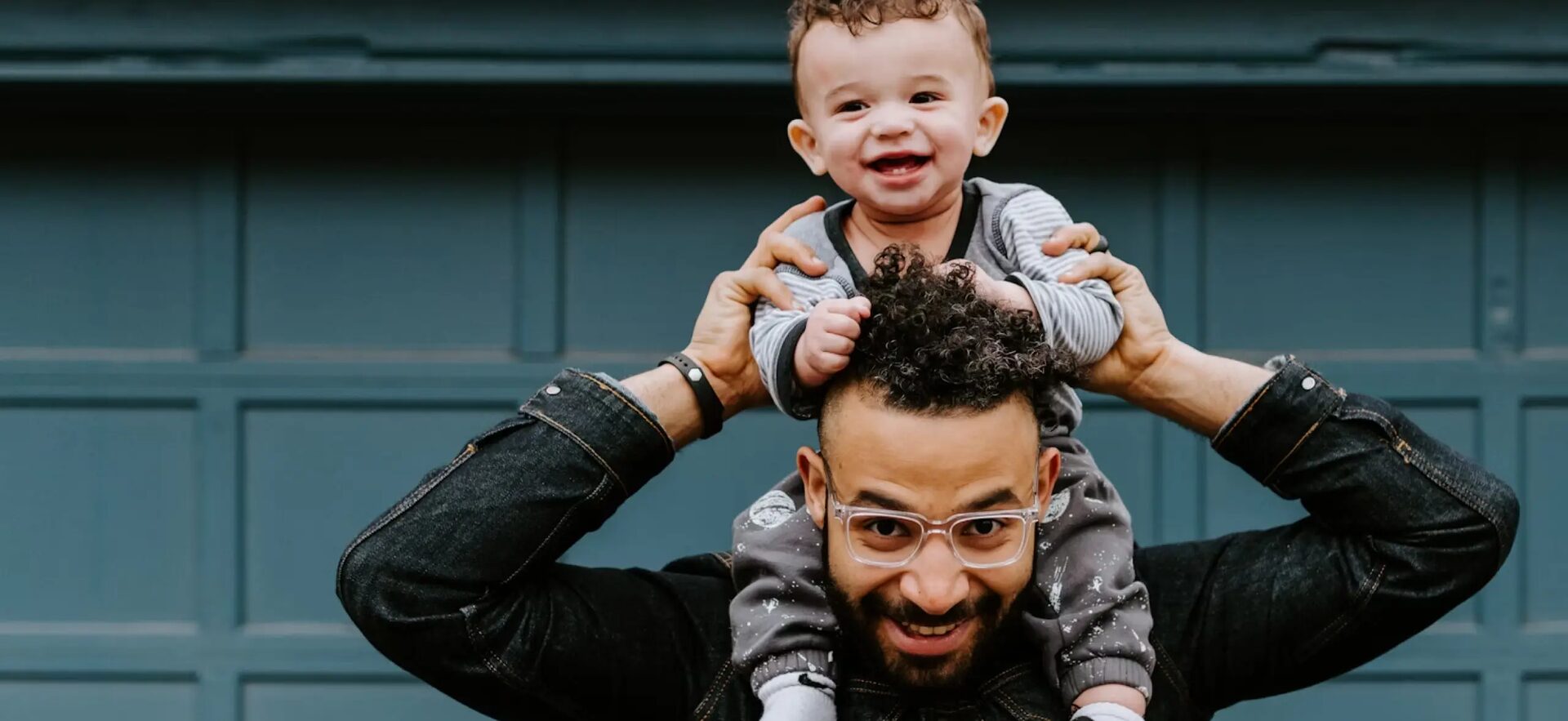
In 2023, we saw a greater sense of optimism and hope as the pandemic that disrupted our lives and harmed countless families entered a new phase. Normality began to return. Even more promising, the significant public investments made during the crisis bolstered families, lifting some 5.2 million children out of poverty before lapsing. This was proof that investing in families could make life better for children.
It was an exciting year for the Casey Foundation too, as we celebrated several remarkable milestones. First, we entered our 75th year of service to children, youth and families. In addition, two of our signature programs — the Juvenile Detention Alternatives Initiative and the Children and Family Fellowship — marked 30 years of transformative leadership.
Throughout the year, we continued to sharpen our focus, better aligning our work for younger children and families with our investments for older youth and young adults — which we call Thrive by 25. In doing so, we identified five key areas that we believe are critical for young people to thrive, from birth through young adulthood: basic needs; permanent relationships; financial stability; early care, education and credentials; and community and youth leadership. We believe these core areas are deeply intertwined and that working to simultaneously improve outcomes in all of them is critical to the future for all children and youth.
This report captures some of the results we achieved in 2023 across these five areas. I hope it gives you a better sense of the Foundation’s mission, priorities and approach, as well as the ways we track our progress.
During the year, we highlighted two important issues that merit greater attention and innovation by leaders, policymakers and practitioners:
We look forward to partnering with others across sectors to reverse these trends.
Our goal is to change the odds so that all kids can succeed, not just help a select few beat them. This is difficult work, and it often takes years — sometimes decades — to fully take hold given competing priorities, financial disincentives and implementation challenges. But we see the impact our work can have, and we know our progress, however incremental, has the power to change lives.
We won’t give up. Together, we will keep working to create a brighter future for all of America’s children, youth, families and communities.
Lisa M. Hamilton
President & CEO Lisa Hamilton discusses the Casey Foundation's work
Across its investments, the Casey Foundation holds a set of collective operating principles and priorities. These approaches are the foundation of our organizational culture and define how we partner with others.
Data provide insights that enable better decision-making across all levels of the organization. The Foundation invests in public data collection and promotes the use of disaggregated data to help tackle inequities and raise the bar for all children.
The Foundation focuses on complex issues created by deeply rooted inequities. We know that addressing them can take time, and we must keep the long view in mind.
Casey uses its resources to advance research, innovative solutions and system reforms that help kids, young people, families and communities thrive. Not every innovation works, but we must try to holistically change the odds for entire groups of young people.
Casey is dedicated to improving the well-being of all children in the United States while closing the gaps for children and youth of color and connecting all to opportunity on the road to adulthood. We know that disparate outcomes will not be eliminated without intentional focus.
To achieve our desired results, Casey must influence a diverse set of allies across places, political lines and sectors to invest in the most effective strategies.
The Foundation focuses on bringing the best ideas to scale to effect as many children and families as possible.
The Casey Foundation invests in innovation in five key areas critical for children and young people to thrive: basic needs; permanent relationships; financial stability; early care, education and credentials; and community and youth leadership.
While we know that other issues are also important to child and family well-being, these investment areas align with the Foundation’s long-held expertise in child welfare, juvenile justice and economic opportunity and have the most potential to spark change.
In 2023, the Foundation partnered with nearly 900 organizations, investing more than $98.5 million to find solutions to our nation’s most persistent social issues. We invested in programs and services, advanced research and piloted new solutions and system reforms to help children and their families overcome barriers to success. Our ideas were strengthened by doing work in and with communities through local partnerships that helped demonstrate what works. We then used our investments in evaluation, leadership development, partnerships, communications and policy advocacy to try to influence others to invest in the most effective strategies based on solid evidence. Ultimately, we hope to take the best ideas to scale, helping them reach as many children and families as possible.
While the following results are not exhaustive, they provide a snapshot of our collective progress and future promise.
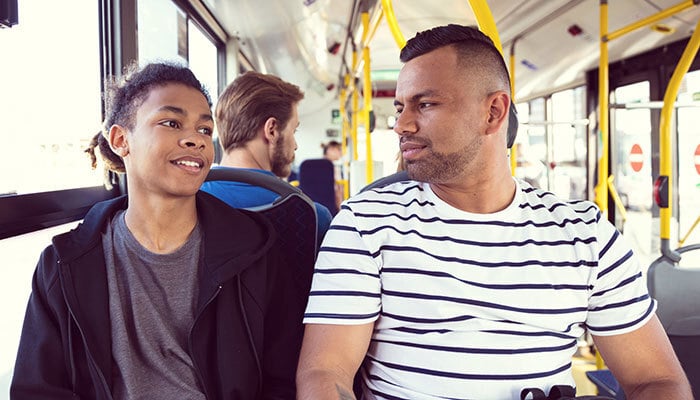
Through program, policy and practice change, Casey helps children, young people and families meet their basic needs, including housing, food, safety, physical and mental health, transportation and child care.
In 2023:
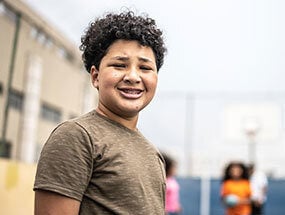
Addressing the mental health crisis among adolescents in underserved communities is critical to supporting their overall well-being. And with funding from the Annie E. Casey Foundation, DePaul University Professor Antonio Polo is evaluating and expanding Act and Adapt, a program that identifies middle schoolers who are showing signs of depression or anxiety and connects them with resources.
Rates of depression rise sharply in early adolescence, yet many youth — particularly those who are Black or Latino — go untreated. Recent data show that among adolescents who had experienced at least one major depressive episode, Latino youth were 23% less likely and Black youth were 21% less likely to receive treatment than their White, non-Hispanic peers.
Act and Adapt, developed for ethnic minority early adolescents, utilizes cognitive behavioral therapy techniques to help students identify and manage daily stressors. Groups of five to six students meet with facilitators such as school counselors to learn coping skills and strategies for the challenges they can control (Act) versus those to which they must adapt. Assessments show students exhibit fewer depression symptoms after completing the program.
Since partnering with Chicago Public Schools in 2017, more than 339 providers have been trained across 158 schools. These providers have run 430 groups serving more than 2,300 students. In fact, the U.S. Department of Education recently boosted DePaul University’s training effort with a $4.2 million grant aimed at increasing the number of diverse counselors in the school district and supporting their training to deliver Act and Adapt.
With Casey's support, Act and Adapt is now developing a centralized online platform to track implementation, collect data and facilitate expansion to more school districts, including Providence [Rhode Island] Public Schools in partnership with Casey grantee Children and Youth Cabinet Rhode Island.
By prioritizing evidence-based mental health services, the Act and Adapt program is one innovation that is creating a model for supporting the well-being of underserved youth across the country.
Casey invests in ensuring children, youth and young adults — especially those involved in the child welfare and juvenile justice systems who have been disconnected from opportunity — have strong, permanent connections with caring family members and other supportive relationships with adults in their community. This work often means funding innovations and demonstrating better practices to improve how child welfare and juvenile justice systems operate and to prevent young people from being involved in those systems in the first place.
In 2023:
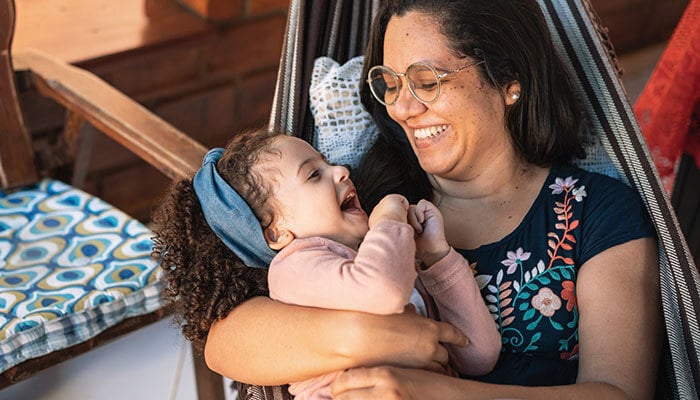
The Foundation aims to give parents and young people access to traditional employment or entrepreneurship and customized financial tools that enable them to achieve financial stability and well-being. This work involves shifting public policies and workforce development systems to better meet the needs of youth and families who face barriers to financial stability.
In 2023:
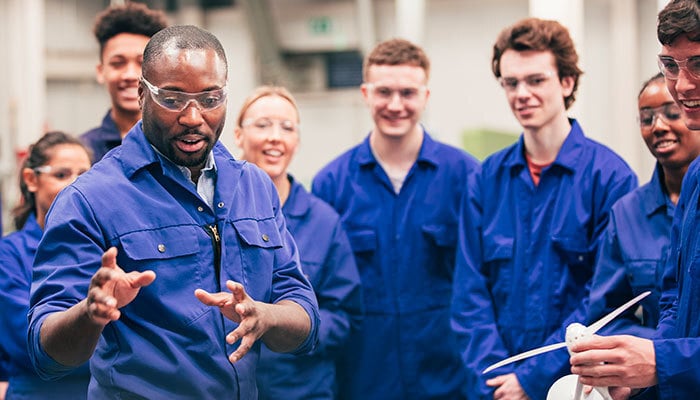
Casey invests to make sure children, youth and young adults meet developmental milestones, graduate from high school and obtain postsecondary credentials that will position them for economic success.To achieve this, we promote approaches and policies that help more children and youth prepare for school and work.
In 2023:

Miami Dade College, one of the largest higher education institutions in the United States, is taking innovative steps to support student parents. Through its Mission North Star program, the college is helping young moms and dads, ages 18–29, pursue associate and bachelor's degrees while balancing the responsibilities of parenthood.
The college is one of three participating in the Casey Foundation’s Expanding Opportunities for Young Families, a five-year effort to reduce the challenges faced by student parents, who make up 1 in 4 community college students nationwide. Many have young children younger than age 6 and struggle with basic needs like food and housing. Miami Dade College worked closely with student parent to ensure the program addresses their top priorities.
Mission North Star focuses on promoting parent leadership and connection, eliminating enrollment barriers, and providing tailored support services. It connects students to community partners in workforce development, education, health care and housing. The program also helps those who are not yet enrolled, helping student parents prepare for higher education through high school diploma and ESL programs.
Success coaches for these parents are key to the program's success. They work one-on-one with participants to develop plans that balance school, work and family commitments. They also connect students to resources, such as advising, tutoring, childcare and transportation.
The program has already seen strong results. Akeila Hardy, a nursing student and young mother, credited Mission North Star with helping her secure child care and financial aid to stay enrolled. Khalil Peters, a father of two, said the program's workshops and scholarships were pivotal in allowing him to manage the many demands on his time.
Miami Dade College plans to integrate and expand the Mission North Star model across its eight campuses. By prioritizing the needs of student parents, the college is creating a blueprint for other institutions to better support this population, improve graduation rates and help more young families thrive.
The Foundation supports community members and young people to advocate for themselves, promote policies that will help them succeed and play leadership roles in making their communities stronger and safer.
In 2023:

In her first year at University of Nebraska-Lincoln, Tyeisha Thompson felt a sense of accomplishment. “I really found my voice and started to feel more confident,” says Thompson, who had entered foster care a second time at age 13, following her grandmother’s passing.
Through a state nonprofit, Thompson joined the Learn and Earn to Achieve Potential (LEAP)™ initiative. Launched by the Casey Foundation and the Corporation for National and Community Service, LEAP aims to boost employment and educational opportunities for young people who have experienced homelessness, foster care or involvement in the criminal justice system.
She soon found herself immersed in the LEAP Youth Fellowship program — a paid one-year leadership opportunity that brought together 10 young people from across the country. Participants attended workshops and other skill-building events, helped peers at local LEAP sites and pursued entrepreneurial passion projects.
Through the fellowship, Thompson was provided the platform to channel her experiences into meaningful action. Encouraged by her mentors and peers, she developed a plan to help children and young adults in foster care transform their living spaces into nurturing, personalized retreats.
With grant funding, she put her plan into motion, partnering with local nonprofits to identify youth in care. Her approach was guided by three main objectives: creating spaces that boost healthy habit, highlight the uniqueness of each child and making change less scary. “Whether you’re in a permanent placement or with a family temporarily, you can benefit from using your space intentionally,” she says.
Today, Thompson has graduated and is working as a specialist with Jenda Family Services, helping prospective foster care providers become licensed with Nebraska's Department of Health and Human Services. She hopes to one day scale her passion project — a nonprofit called Creative Spaces Inspire Youth — into a thrift store that allows clients to find items they love.
"The LEAP Fellowship gave me a confidence boost at a time when I needed it most and connected me with opportunities I couldn’t have imagined,” says Thompson. “By helping a young person determine the look and feel of their personal space, I want to empower them the way LEAP empowered me.”
We fund an array of activities to help the Foundation and its partners better understand the problems affecting children, youth and families; build proof of effective interventions; and test new technologies to promote implementation and scale.
In 2023:
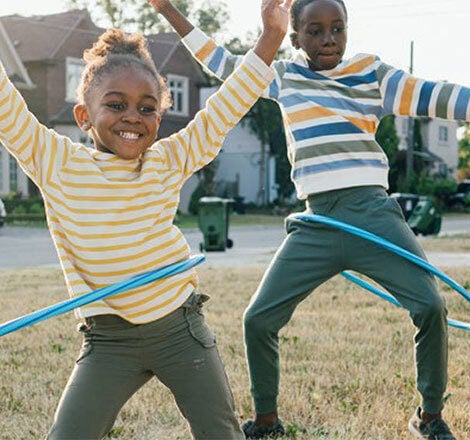


The Foundation’s grantmaking and operations are funded by an endowment established by its founder. The board determines the annual budget in December of the prior year based on a formula designed to ensure we have resources sufficient to sustain our work in the future. The value of our assets fluctuate during the year based on the performance of our investments which means our spending rate is not predictable and will vary annually. A listing of the Foundations’ grants are available and updated quarterly on Candid.
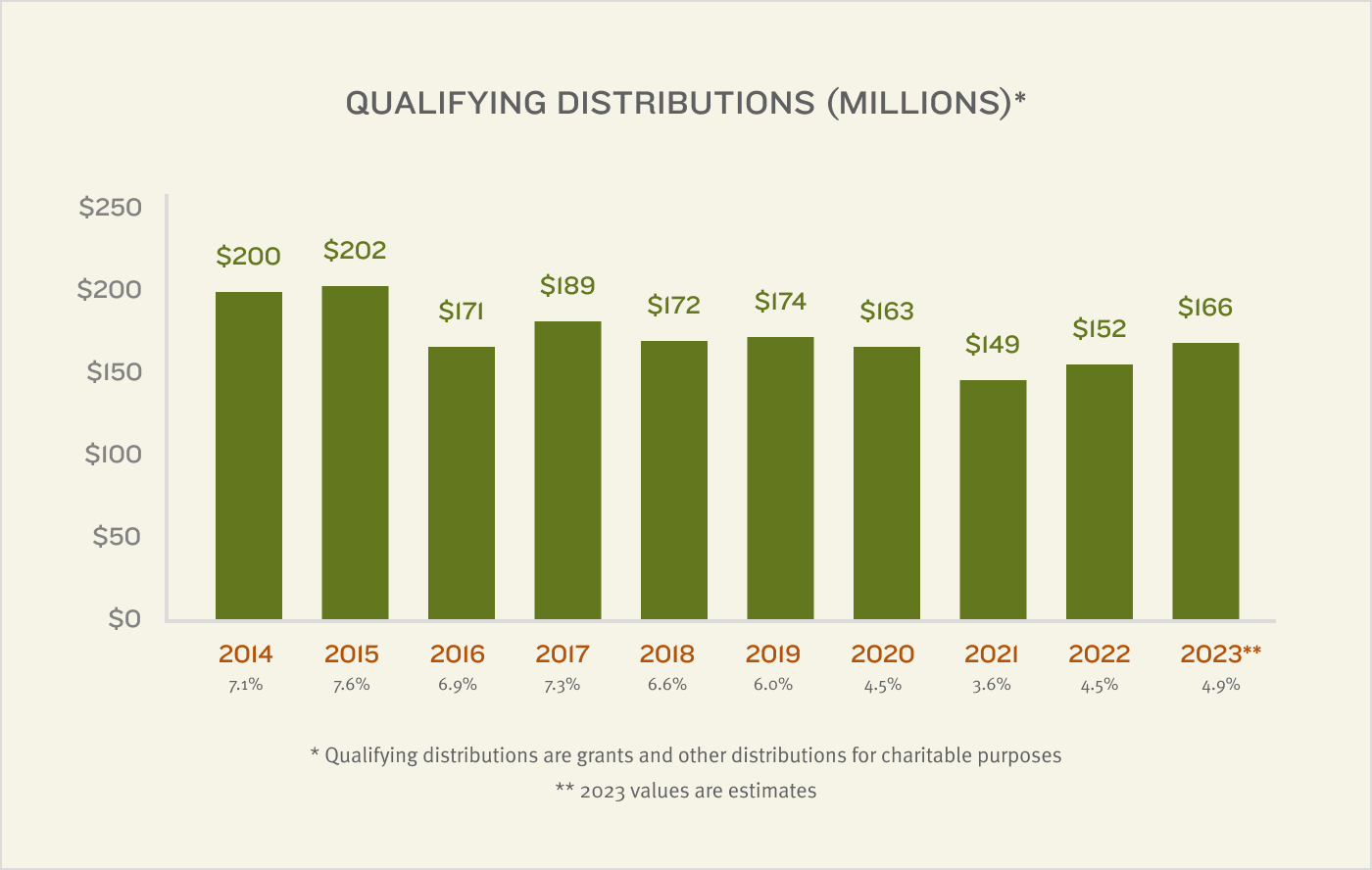
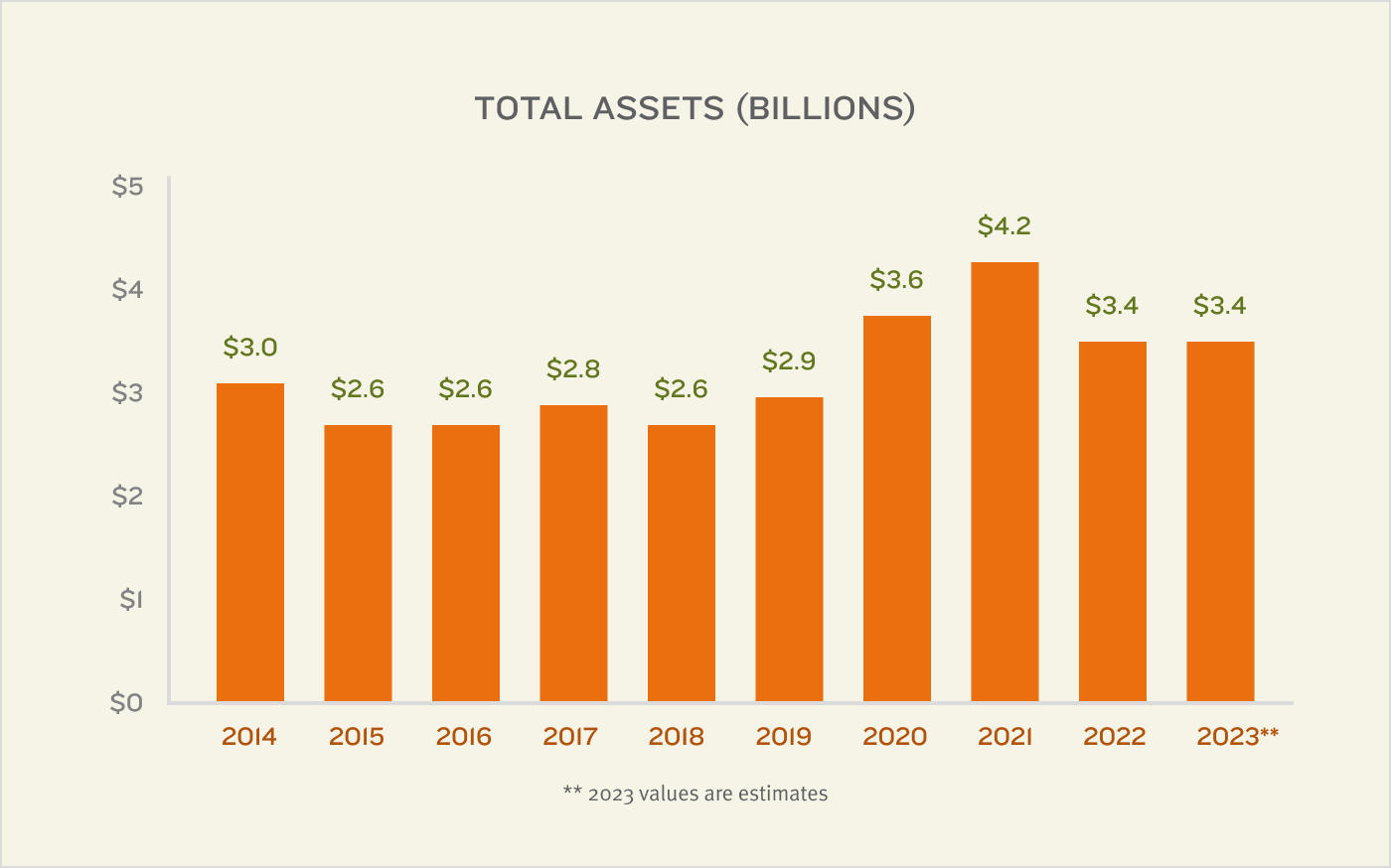
By working with our grantees and partners, Casey hopes to make sure all children and youth have a bright future. We have identified 18 population-level indicators to track progress toward this goal and benchmark how young people and families are doing at the national level. While the Foundation’s KIDS COUNT index is used to measure overall child well-being, these indicators — aligned with each of the five investment areas — track the needs and disparities that our investments target.
As data become available following the pandemic, it’s clear that the country is making progress in some areas but that more work is needed to ensure all children have what they need to thrive.
Here's how each indicator is trending following the pandemic (between 2019 and 2022, unless stated otherwise):
Data on most indicators are available in the KIDS COUNT Data Center.
We hope you'll find value in this report. We’d love to get a little information from you, which we'll use to notify you about relevant new resources.